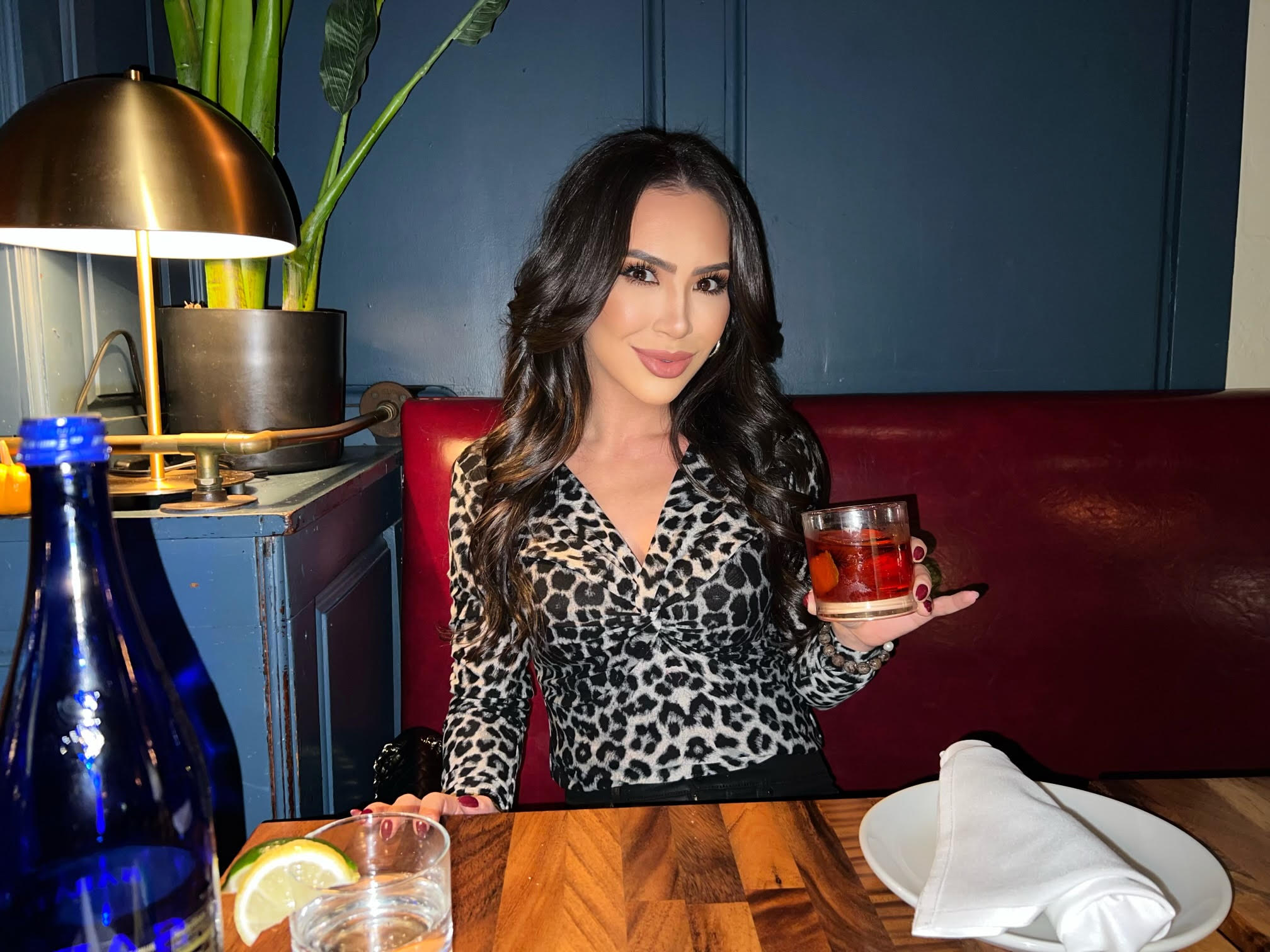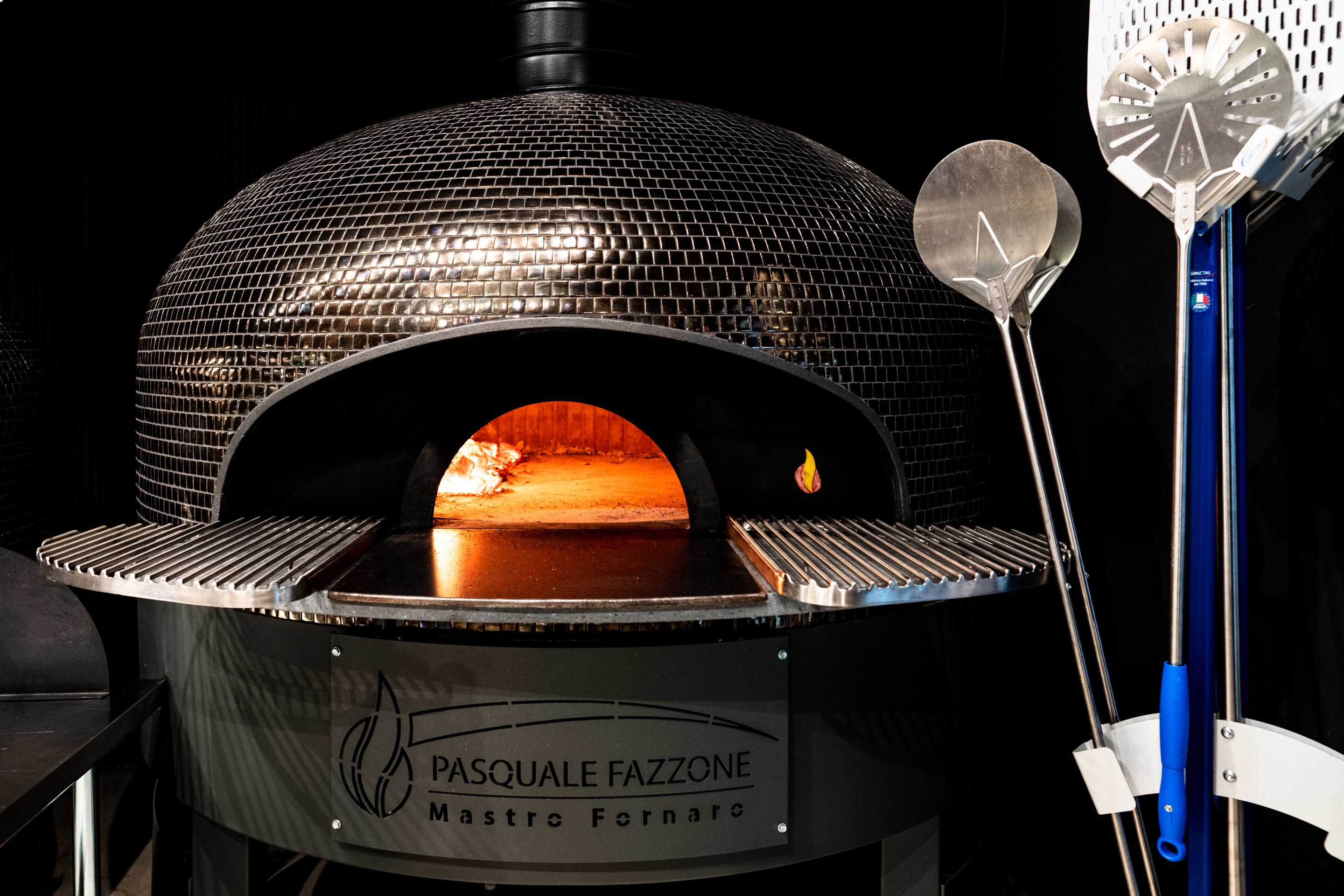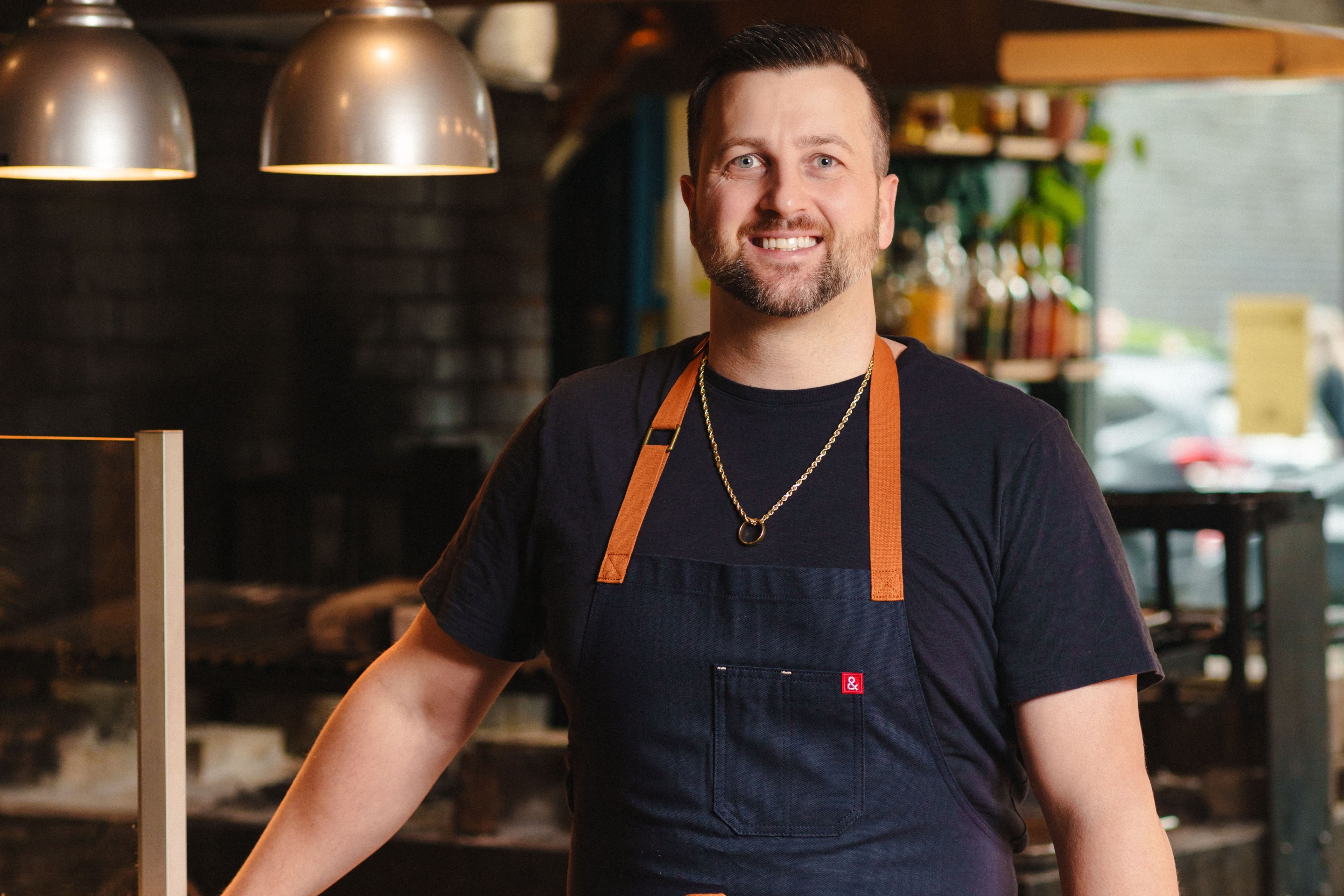Rossella Rago is something else. The first-generation Italian American from Bensonhurst, Brooklyn, is an award-winning author of three cookbooks, a social media star, a pioneer, a successful entrepreneur, an actress, beauty queen, trendsetter, sidewalk philosopher, designer of fashion and kitchenware, and a charismatic cultural icon. Most of all, though, she is a family woman whose primary platform remains “Cooking with Nonna” which features Rossella and her Nonna Romana, in various mediums. We sat down with the whip-smart, side-splitting, food diva to discuss her success and challenges, as well as other relevant topics she is all too happy to reflect upon in her indomitable, insightful manner.
At first blush, you appear to be, primarily, a social media celebrity. Can we unpack that status a bit?
Sure. I have 125,000 followers on Instagram, more than half-a-million likes on TikTok, but our biggest platform is Facebook with over 800,000 followers. We also have hundreds of thousands of people on our mailing list. We get around pretty good.
Beyond that strong visual presence, you have a tremendous amount of accomplishment, as mentioned above, but also a degree in Italian Literature from St. John’s University; a business that employs six people full time with additional seasonal help; you ran an Italian culinary tour company in your 20s. But the biggest thing you are known for is your visual persona. Do you think, as a result of this, you're not taken as seriously as you deserve to be?
Definitely. Well, in some cases, but not by consumers.
Then by whom?
Maybe the institutions in the Italian American world, though I think the optics are changing for so many organizations because they realize the value of social media. Am I taken less seriously? Perhaps because of the content that I make, which is intended to be sassy and fun. The reality is I don't take myself so seriously, or not as seriously as I used to when I started in this medium in 2008. When I started developing Cooking with Nonna, nobody was on YouTube making cooking content unless you were a restaurant chef or a professional chef of some kind. And if you were making food videos, you didn't look like me, you didn't sound like me. I was really lost. The only reference I had to look to was Food Network, so I tried at that time to model myself after what women on Food Network looked like and sounded like. I wore little sweater sets and had my nails really short and pink like Giada had, because that's what you did. I remember feeling like I was definitely playing a part, trying to get the message out there. I was a very young woman. I didn't know who I was, and I didn't think it was okay at that time to be so unapologetically Italian American, the way I am now. You could argue that I play a little bit of a character in my Instagram reels. You know, my voice is a little more pronounced; my accent is a little more pronounced. But when people say negative things about that, I'm like: What? Do I have a British accent in real life?
I think people see my content and want to put it in a box, but the past few years in my career, I'm really just about saying: Why can't we be all these things at once? Why do they have to be mutually exclusive? Why do you have to be one of the serious Italian Americans who sits on a board or some clown on Instagram with hundreds of thousands of followers? This accent doesn't make me less of a published author. It doesn't make me less of an entrepreneur. It doesn't make me less of a businesswoman. No matter what kind of fun content I make, it doesn't diminish who I am.
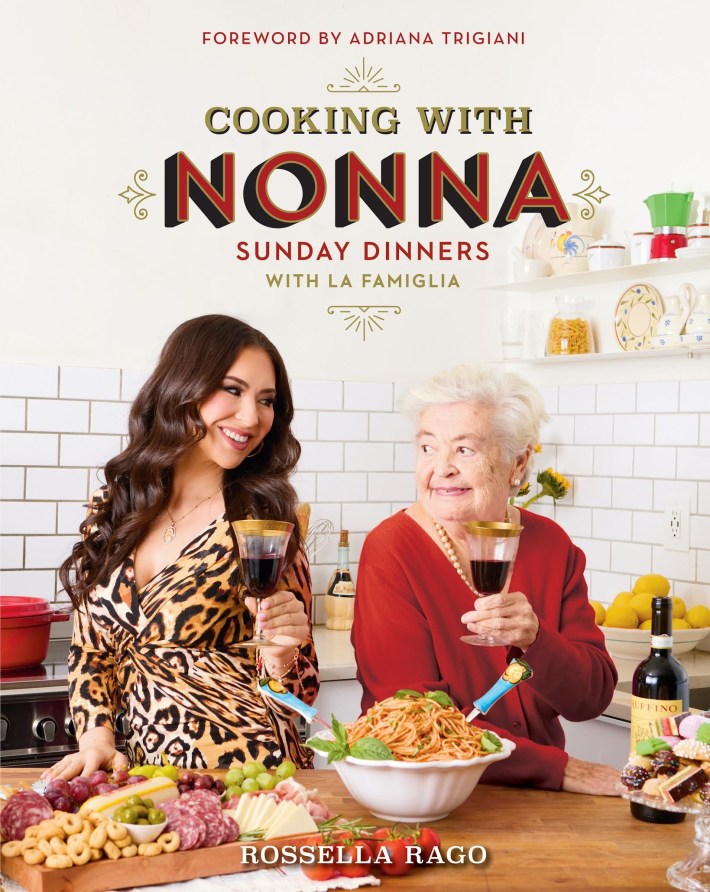
Do you think there are any negative ramifications from the exaggerated Italian American character, not just within the community, but among those who are not Italian American who seem to relish in watching Italians play into a familiar, cartoonish stereotype?
No. I don't think there's negative ramifications any more than there are for other ethnic group that has people who speak a certain way, dress a certain way. Maybe I give people too much credit, but I think that they're intelligent enough to recognize this behavior for what it is and not to project it across an entire culture. There are so many facets to any immigrant community in America, and when we perpetuate or criticize, it's like saying there's only one way to present ourselves. I make content that reflects my Italian American experience. I don't represent all Italian Americans. I represent myself, and if you want to put me in that box where I’m a negative role model for all Italian Americans, that's your problem.
When I make a video, I'm not worried that a girl in Dubuque is going to see my video and have a negative perception of Italian Americans. The content that I make is either me cooking with Nonna or giving sassy straight talk advice with a pronounced accent, but why is that bad? Why are we saying that it’s a bad thing for women to be sassy and in your face? Why is that negative?
What do you think that the girl in Dubuque is thinking when she sees your straight talk videos?
I don’t know, but I hope she's thinking that girls from Brooklyn are really confident, that they say what they want to say. And maybe she’ll want to be that way too.
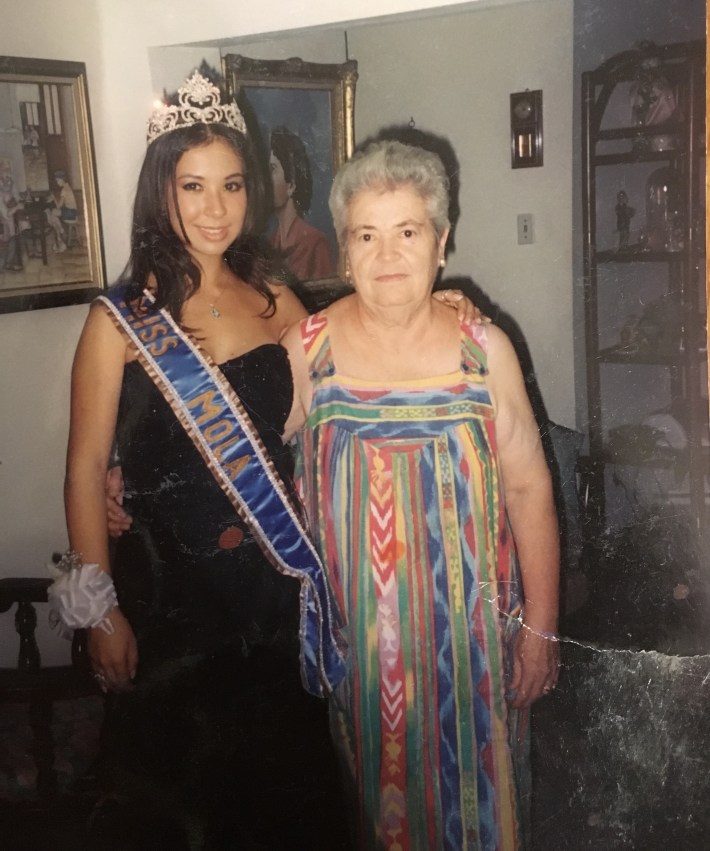
How much negative feedback do you receive?
I receive negative feedback every single day. Maybe 20% is negative, and 80% is positive, but it's so easy to focus on that 20%.
Is there a recurring theme to the negative feedback?
Yes, but it’s different for the different content that I make. So, my negative feedback with my Nonna content is that I exploit grandmothers, that I exploit my grandmother to make money.
Does that hurt?
It absolutely hurts because there's no one I love in the world more than my grandmother, and I started Cooking with Nonna because I felt that Italian grandmothers were the unsung heroes of our culture. I felt like they deserved a platform. I was the first person to give them a platform to share their recipes, to share their life stories with people, and the fact that people think I'm trying to just exploit them for likes or whatever…It's really hurtful because it couldn't be further from the truth. I think the grandmothers all deserve to be stars in their own right. And now they are. I saw it back in 2009. And now it's reality. Some of the ladies that I've worked with now have their own social media platforms around cooking, and it makes me really proud. I'm the OG Nonna creator.
How did you come up with the concept for Cooking with Nonna?
I was going to St. John's University, studying Italian literature with the intention of becoming an Italian teacher. I was living with my Nonna at the time because my parents had moved to New Jersey, and nice Italian girls don’t dorm. And if they did, my father, Vito, was not going to pay for it. So, I went back to the basement in Bensonhurst and shared a bedroom with Nonna all throughout college. I mean, I've seen some things, let me tell you.
It was a great experience, don't get me wrong, but my Nonna was one of seven, and she didn't have a lot of boundaries. I’d be in the shower, washing my hair, and she'd rip open the curtain and ask, “What do you want to eat today?” And I'd be like, “Can we have one conversation when I'm not naked? You know, maybe just one?” It was a really interesting time in my life where I was struggling with my own choices and my own circumstances. But it was unwittingly my culinary education because my grandmother cooked so much every single day. She would cook for me. She would cook for other people. She would be making Taralli (round Italian crackers) constantly with her sister Rosa. There would be something new happening every day. I absorbed so much living there, all the tastes and smells and stuff. So, one night my father comes over for dinner. He's talking to me, and he says, “So what do you want to really do with your life, because we know you're going to be a terrible teacher.” I was like, “You know this? What, you guys had a summit?”
The thing was, at that time, when you grew up in Bensonhurst and Italian was your first language, there were not a lot of avenues for a career. Brain surgeon wasn't there as an option. You become an Italian teacher, or you work with hair and hope to get knocked up by the time you're 25. That didn't work out for me either. I had actually been in the entertainment business since I was 11 years old. My mother is a theater actress turned film actress, and she put me and my brother in the now defunct Guild of Italian Actors, and then she let us do enough extra work to where we got our SAG cards. So, I’d always been in that business. I actually ended up standing in on movies and TV shows for 15 years. So, I said to my father, “I want to have a cooking show because that's the greatest job in the world.” I just blurted it out. And he looked at my grandmother and he says, “Yeah. We should call it ‘Cooking with Nonna'.” And I was like, “Oh yeah, that's so funny.” But a week later my father bought the web domain, www.cookingwithnonna.com. In 2009, this is cool. Today, practically every asshole has a website, but back then it was a big deal. A week after that, he started construction on the set that we would cook on. It was this island that would roll in and out of the kitchen where my parents lived in New Jersey. So, we had a website and a set, and we decided we should do something with this.
Around this time, I went to a psychic, you know, because I'm one of those people. A very famous psychic in the West Village. He had this fabulous apartment where he would chain smoke and see his guests. Hilarious. Before launching anything with the show, I had business cards made with the logo. I shared one of my cards with the psychic. He looked at it says, “Within one year, you're going to be on the Food Network.” Within that year, my father and I were trying to build this show. We were making episodes. We had no idea what we were doing, and it really just started out as a family project. My mother would call up her friends and be like, “Rosalie, my daughter's got a show. You want to be on the show?” And they would come over, and we would film every Sunday. That meant for a girl in college, she wasn't going out partying because every Saturday night I was prepping the episodes for the next day. I tried to take it as seriously as I could. We definitely weren't ready, but the shows were going on YouTube. People reading this now probably don't realize how far it was from a content creation standpoint like we have today. You couldn’t film everything on your phone at that time. We hired the audiovisual department of Seton Hall University, and they came in with these giant cameras and lights and everything. I hired a hair and makeup person, which was dumb. But, you know, we really wanted to make it like a real show. We wanted the nonnas to feel special, like they were on a real set. We just started doing it. I always tell people: Don't wait until you're ready because you're never going to be ready for something. I look back at those early episodes, and I laugh at myself because it's so campy. But if I had waited for everything to be absolutely perfect, it never would have happened.
What happened with the psychic?
So, he told me that within one year I was going to be on the Food Network. That year, along with shooting our first shows, my father would pass my business cards out at random places in Brooklyn, just put them down on all the tables. He was very proud. One night, somebody picks it up. A week later, I get an email about casting for the Food Network's 24-Hour Restaurant Battle hosted by Scott Conant. That show's not on anymore, but they wanted me, Nonna, and my mother to be on the show where you have 24 hours to conceive a restaurant, shop, prep, cook, and serve 100 people. I ended up passing out and going to the hospital for dehydration and exhaustion. But I came back, and we actually did win the episode, and that episode aired one year after I saw the psychic. So, he was right.
How long did it take with Cooking with Nonna to reach what you would consider a success?
Almost a decade. It felt like there was a long, dark time with no success. I was just this young woman running around with my dad, my dad-ager, Vito. Kim Kardashian gets a mom-ager; I get a dad-ager named Vito. I felt like a lot of people didn't take me seriously. This is 2009, and they were like: What is she doing? Even people I knew didn't know how to help me. One of my best friends, John Viola, who's now my co-host on The Italian American Podcast, who was President of NIAF (National Italian American Foundation) at the time, thought we had a great concept, but he had no idea how to help us. There wasn't really a place for me at the time.
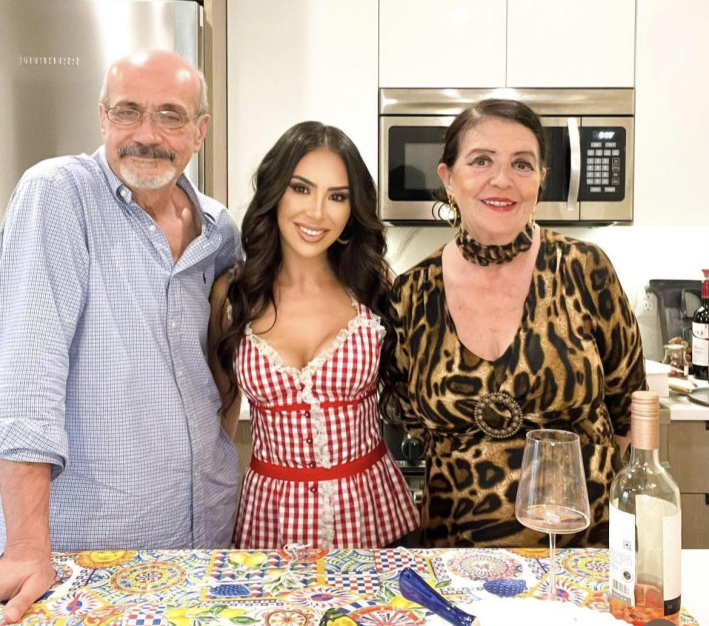
When did this change?
I got my first book offer in 2016, and I think that really made me feel like I was a legit food personality, like I deserved to be in this space. I think I struggled with this kind of impostor syndrome for the first few years because I wasn't a classically trained chef. And I was like: What business do I have telling people how to cook? I think that was part of being a young woman. It's really hard to be a young woman. Don't ever do it.
One of the things that differentiates you, particularly for your age, is your credentials as both an Italian American and someone with a profound knowledge of Italy.
People seemed to eventually notice this about me, but I don't think I ever noticed that about myself back when I started in those early years. I don't know if it's like my New Yorker / Woody Allen neuroticism, but I guess I really was an outlier for my age. I had my own food culinary tours to Italy at 25. This was successful because I understood good food and what people wanted to eat. I knew how to give them certain experiences. Italian was my first language. I didn't learn English until I was 5 years old, until my parents just dropped us off at school, and were like, “Good luck!” I spent three months a year in Italy since I was 7 years old. As a result, I often feel too Italian for Americans and too American for Italians. I grew up first generation, and when you grew up as a first-generation American, you just see the world totally differently. You have to grow up faster because you have to kind of help your parents as a lifeline in this country. You're making appointments for them, and you're reading their mail, and you're explaining to them how a parent-teacher conference works, and you’re telling your mother that she has to be like the other moms.
What’s one thing about you that most people don't recognize or get wrong?
I think some people, for some reason, have the impression that I’m not smart. That I have a Jessica Simpson quality; they see me and make these really stark assumptions based my appearance and stuff and what that must mean for my personality. Sadly, it's a lot of women who feel that way. But I present myself the way I present myself, and I'm always going to be a woman who wears makeup, who's not afraid of being glamorous for the sake of impressions. I would never not be glamorous just to be taken more seriously. My entire vibe is that you can be a glamorous woman, a smart glamorous woman, and a funny glamorous woman. Women can be all these things. I don't think it's fair that we force women to choose. Do you want to be beautiful, or do you want to be taken seriously? Do you want to be sensual, or do you want to be taken seriously? Do you want to be successful, or do you want to be taken seriously? Why can't we be all the things? I have a problem when people try to put me in a box because of how I talk or how I look or for anything. It's not fair.
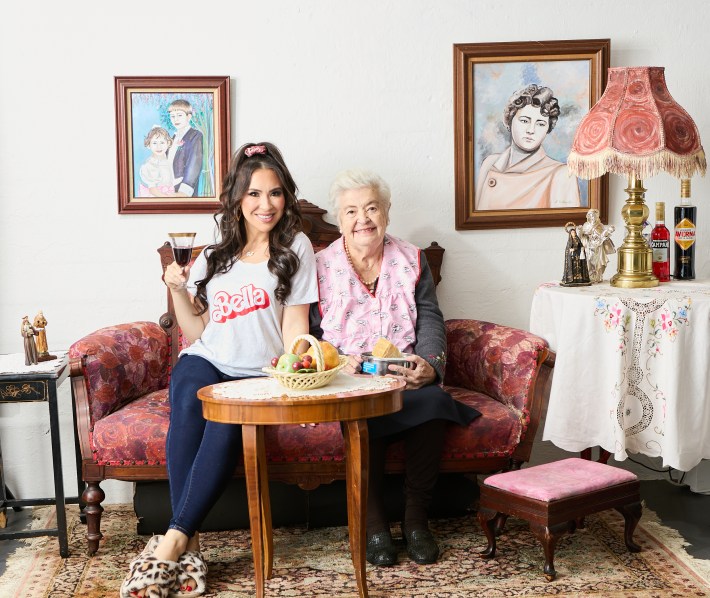
What’s a typical workday like for you?
It depends if I'm going to our warehouse or if I'm creating content. If I go into the warehouse, I try to get to there when they're having lunch just because the morning is usually filled with our team packing and shipping orders. It’s a family business, so I'm really fortunate to have my father do most of the operations in our warehouse, but I go there to go over inventory, to look at what new products we're launching, approve designs with the team, and then I steal products from our warehouse to take home and make dinner. If it's a content day, my assistant Sabrina comes around noon, and it depends how many videos we're going to do that day. We do anywhere from one to four videos that get edited into one-minute reels for social media. Sometimes we have to shoot products, to create content around our apparel, so we can have a photo shoots well.
I feel like every day is a little bit different, and it can be chaotic, but I never look at it like: Oh, I did too much today. I always have that mentality that I think is from my family and my Italian American upbringing that: Oh, you only did four recipes today. You only shopped for products today. You only did this today. I just look at hard work and success through a very different lens. To me, the top of one mountain is really just the bottom of another one. Growing up in the home where I did, people just aren't very impressed with you. You live your life around that. I remember bringing my first book home to my Nonna and my parents, and I mean, yeah, there was some Asti Spumanti, but no one there was like, “I can't believe you did this!” They looked at the book; they looked at me and said, “Good. Now do it again.”
And that's the way I live my life. You don't rest on your laurels. You don't rest on your ass. You don't rest ever. You keep going, because if you stop moving, you're dead.
I think that's the way a lot of Italian Americans had to live their lives, coming to a different country, coming into a new world, trying to assimilate into a society. So, whenever I get really low, and I think that my life is hard, and these choices are hard, I think of my Nonna who spent 27 years bent over a sewing machine at the Howard Clothing Factory in south Brooklyn. And the pain that she felt having to leave one of her children in another country for 14 years because there was no room at the inn, so to speak, at her sister's apartment where she slept in an extra bedroom for decades. I think of all the women I've worked with who were faced with impossible choices: marriage to men that they didn't want to marry; other lives that they would have liked to live; universities that they were never allowed to attend. And so, when I think my life is hard and my life is stressful, I realize that I stand on the shoulders of giants. I stand on the shoulders of those women who sacrificed everything and made choices, hard choices, so that I would have easier choices. So that I could choose almond milk over oat milk at Starbucks, though I actually drink real milk, half & half.
How does being a first-generation Italian American inform your life?
My parents were probably the last wave of immigration. My father came in 1969 when he was 14, and my mother came here finally to live in 1979, right before she married my father. I was born in 1987. And it was the end of the golden age of Bensonhurst-Italian America. At that time, 18th Avenue was the piazza. It was Mecca for Italian Americans. It was Caffe Mille Luci and Il Grottino. There was the movie theater that showed movies only in Italian. Every bakery and small business had Italian signage. For all intents and purposes, you were not in America. You were in Italy. So, I grew up in a microcosm of not just Italy in America but Mola di Bari in America, the village that my family and many in my neighborhood came from. All of my parent's friends were Molese-Americans and all their children were my friends, so I had no reason to think I was even in America for a long time.
It shows you the world through very different eyes. And I think finally going to school and realizing that you are different, that not everybody makes sauce in their garage in September, and some people have microwaves (we were never allowed to have a microwave; my mother thought the radiation would kill us). All these little things that you didn’t realize made you so different than the other Americans, the medigan, that you go to school with. My mother dressed me in Italian clothes with weird Italian things on them and stuff. When we Italian kids went into the melting pot, we learned very quickly that we were different.
Would you be where you are today without that experience?
Absolutely not. My Italian American experience taught me that being different was a superpower. I wouldn't have it any other way.
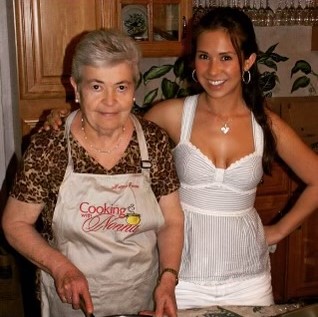
What's your take on the Cold War between Italians and Italian Americans when it comes to cuisine?
If there's a war, it's actually not between Italians Americans towards Italians. I think Italian Americans see Italian people like their brothers. They feel a connection to them. Unless you're like me, and you know too much. Many Italians really view Italian Americans as these subhuman troglodytes. It really hurts me to see this because it's so not the case. At the end of the day, we share blood. We share DNA. Why treat us so contemptuously because of a few dishes that evolved? They simply changed because of the culinary landscape and the financial abundance that Italians found in this country. My Nonna would always say that we're all bread made from the same dough. But there's just this strange animosity, like a culinary pissing contest, about who does things right and better. It's not about right or better. I mean, when I work with a grandmother and she has some fugazi zucchini parm recipe that uses Ritz crackers, what am I going to say to her? That's her tradition. That's her experience. That's the dish that her children and grandchildren will cry about when she dies. How can we say this isn't right or this is a mockery? It's just invalidating people for no reason.
The thing is that Italy, in so many ways, became a country of waiters and restaurant and hotel operators. So, when they criticize Italian Americans, it really gets to me. Italy is a country that hasn't had industry since arguably the 1960s, so the last thing they have to hold on to is this staunch position on food in certain dishes. They can only be made this way. This movement must be stopped or lives will be lost! I just don't understand it. Can't we all just eat the stuff that we like to eat and cook the way that we like to cook like? I can tell you that there's a better way to make a pasta dish, but if you like it the way you like it, you're going do it the way you like it. And we have to be okay with that.
Follow Rossella Rago on Instagram, YouTube, & Facebook. Learn more about Rossella & Cooking with Nonna at their website.
